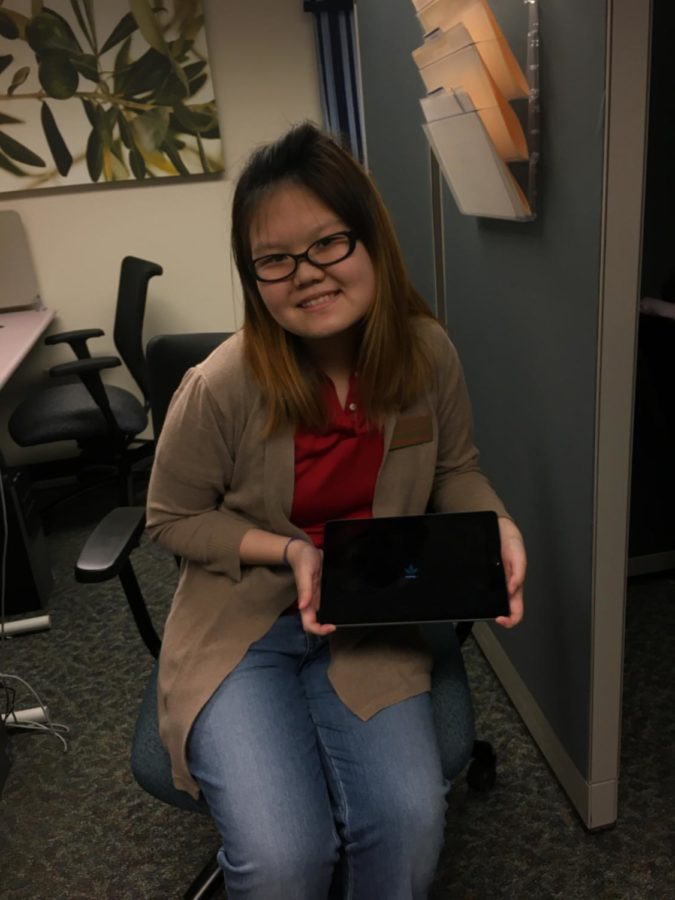Biofeedback free to all Iowa State students
December 11, 2019
Biofeedback, a program offered by Student Counseling Services, helps students master mindfulness.
Since 2009, Student Counseling Services has offered a biofeedback program to help students understand their bodies’ physiological stress responses and how to incorporate healthier behaviors into their everyday lives.
Biofeedback uses a series of apps that each contain numerous games, which aim to help students understand and learn more about techniques such as deep and calming breathing, mindfulness meditation and mind-body connections.
“The purpose of doing [biofeedback] is that so you can tap into the parasympathetic nervous system, which is the body’s natural relaxation response,” said Kent Crick, the biofeedback graduate assistant and practicum counselor.
The apps used during biofeedback measure physical activities that a person’s body endures during stress, such as increased heart rate and skin conductance, and translates these occurrences into auditory and visual information. This aids users in physically seeing and hearing their body’s reactions, helping them increase their awareness of their personal wellness.
Some of the systems available for use in the Mind/Body Spa, one of the services offered by the biofeedback program, have sensors that are placed on the hands to measure the body’s reactions. Some newer programs are offered on iPads that may be checked out when checking in for biofeedback. These apps can be used with clips that clip onto the user’s earlobes to measure responses as well.
Student Counseling Services offers various different biofeedback interactive apps, each focusing on different mindfulness techniques.
“Even if you just take some time, just one to five minutes or so, and do a bit of deep breathing,” said Wen-Hsin Chang, staff psychologist and biofeedback supervisor. “That in itself and its practice is what biofeedback can help you with. It’s more for you to be aware of your body, aware of your emotions, so you don’t push them away. Acknowledging them, not judging them.”
Individuals who use biofeedback may see many benefits, such as decreasing self-consciousness, improved emotional regulation, enhanced academic and athletic performance and reduced symptoms of depression and anxiety, said Chang.
“Most students attend one to two times a week for 30 to 60 minutes each session,” according to the Student Counseling Service’s website.
Individuals who use biofeedback are also encouraged to practice learned techniques at home and to incorporate them into everyday life. Biofeedback is a tool to increase one’s personal awareness. It can be practiced at home without the equipment.
“Biofeedback can be an effective way for practicing some self-care, whether you feel like you have mental health concerns or not,” Crick said.
To get started in the program, students need to attend an initial orientation, which will introduce them to the tools and programs that are offered. To schedule an orientation, call 515-294-5056 or stop by the Student Counseling Service reception desk on the third floor of the Student Services Building.
No appointments are necessary to use the biofeedback center after the orientation. Students who are currently enrolled in classes are welcome to use the programs at their convenience during office hours which are weekdays from 9 a.m. to 5 p.m. on the second floor of the Student Services building.

















